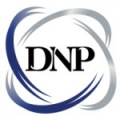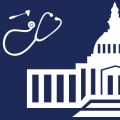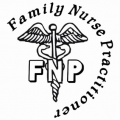Registered nurses (RNs) with a bachelor of science of nursing (BSN) are in such high demand, that RN-to-BSN programs can be found at just about every nursing school in the U.S. And because most RN-to-BSN students are working nurses, some schools have developed online programs to make it easier for these professionals to continue working while earning their degree. Some of the best online options are offered at Grantham University, SUNY Empire State College, University of Maryland University College, California Southern University, and Galen College of Nursing.
Online nursing schools
We've organized a comprehensive list of online nursing schools. Below you'll find information on generalist nursing programs at the ADN, BSN, and MSN levels. You'll also find reviews of popular nursing specializations and a profile of the two terminal nursing degrees. All programs are offered fully online.
Entry-level and generalist programs
Specializations
(MSN and certificate)
Terminal degrees
(DNP and PhD)
Nurse educators teach aspiring nurses about patient care. They develop curriculums, mentor students, and lead both clinical work and lectures. Nurse educators may also perform research, work directly with patients, or combine teaching, research, and direct patient care. Due to the specialized nature of all areas of nursing education, an advanced degree such as a master of science in nursing (MSN), doctor of philosophy (PhD), or doctor of education (EdD) is required for most positions.
The demand for more nurses in healthcare policy and public health nursing is greater than ever before. These key healthcare providers are on the front lines at hospitals, clinics, and nursing homes, so they are often the first to observe how and when the healthcare system is not effectively meeting patient needs. Healthcare organizations recognize the importance of this perspective, and they appreciate the role it plays in influencing patient care and outcomes in order to create a healthier society.
Psychiatric mental health nursing is a specialty within nursing that focuses on providing care services to the psychiatric-mental health population. Per the American Psychiatric Nurses Association (APNA), the psychiatric-mental health nurse practitioner (PMHNP) is responsible for assessing, diagnosing, and treating individuals and families with psychiatric disorders or the potential for such disorders, using their full scope of therapeutic skills including the prescription of medication and administration of psychotherapy.
Family nurse practitioners (FNPs) belong to a select group of advanced practice registered nurses (APRNs) that are among the highest paid professionals in the healthcare industry. Not only are FNPs well compensated, they also have the highest employment growth rate in the industry. From 2016 to 2026, the projected percent change in employment is 36 percent. This is five times the average growth rate for all occupations.
One of the fastest growing fields in healthcare is healthcare systems administration. The projected 20 percent growth rate in employment from 2016 to 2026 will be driven by an aging baby-boom population and the people in this group who remain active later in life. Per the Bureau of Labor Statistics (BLS), as the demand for physicians and other healthcare workers, healthcare facilities, and medical procedures increases, the need for skilled managers who organize and manage medical information and healthcare staff will continue to grow.
Nurse leaders are responsible for designing, implementing, and evaluating client care, advocating for business practices that promote healthcare quality and patient safety, and synthesizing knowledge of key business and human resources practices to effectively lead healthcare teams.
Nurse administrators are registered nurses (RNs) that hold a graduate degree in nursing or health services administration. Also called healthcare executives or healthcare administrators, nurse administrators are responsible for planning, directing, coordinating and supervising the delivery of healthcare. Key capabilities for this role have been outlined by the American Association of Colleges of Nursing (AACN) and American Organization of Nurse Executives (AONE). They include:
After working for years in the healthcare industry, many registered nurses (RNs) are ready to advance into different areas of nursing such as administration or management, education or clinical specialist. Though they may already possess a tremendous amount of hands-on experience, RNs seeking advancement will also need an advanced degree such as a master of science in nursing (MSN). Certification in their chose specialty is also required.
A master of science in nursing (MSN) can open the door to some of the highest paying nursing roles today. Nurse practitioner, nurse administrator, and nurse educator are just a few. Because of the tremendous demands associated these roles, hospitals, outpatient centers, and educational services are willing to pay six figures or more to qualified candidates. For example, nurse practitioners working in state, local, and private hospitals averaged $114,630 in 2016, while those working in outpatient care centers earned $107,090. At a notable $175,170, high performers earned even more.
Registered nurses (RNs) with a bachelor of science of nursing (BSN) are in such high demand, that RN-to-BSN programs can be found at just about every nursing school in the U.S. And because most RN-to-BSN students are working nurses, some schools have developed online programs to make it easier for these professionals to continue working while earning their degree. Some of the best online options are offered at Grantham University, SUNY Empire State College, University of Maryland University College, California Southern University, and Galen College of Nursing.













